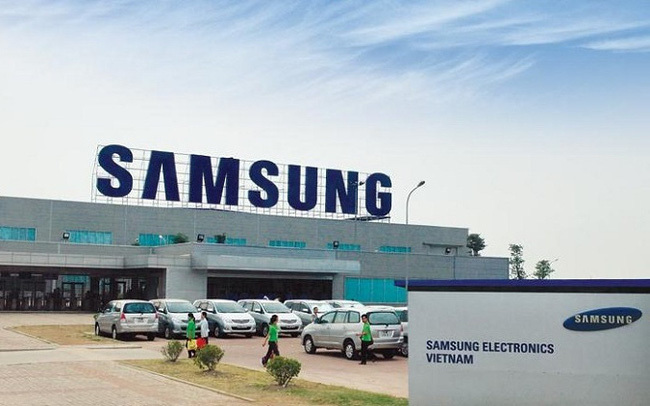Tuan, at a recent conference on supporting Vietnam’s enterprises developing sustainable value chains, spoke about Samsung’s component vendors.

“A lot of Vietnam’s companies said to us: As long as you commit to buy our products, we will borrow money to make investments with advanced technologies to make the products that meet the standards set by Samsung,” Tuan said.
“However, we are living in a flat world with fair competition. There is no discriminatory treatment between South Korean or Japanese and Vietnamese enterprises,” he said.
The competitiveness of enterprises and products, according to Tuan, are reflected in the production costs of small devices.
| Samsung’s mobile phones and phone parts are getting more sophisticated and smaller, which change every six months. It is a challenge for Vietnamese enterprises to renovate production lines and technologies, which requires huge capital. |
“If Vietnamese vendors can provide products with quality, meeting requirements, and at stable reasonable prices, there won’t be a reason for Samsung to refuse to buy products from them,” he said.
According to Tuan, there are many challenges that Vietnamese enterprises encounter in trying to become Samsung’s vendors.
Samsung’s mobile phones and phone parts are getting more sophisticated and smaller, which change every six months. It is a challenge for Vietnamese enterprises to renovate production lines and technologies, which requires huge capital.
If Vietnamese enterprises have huge capital, they would rather invest in the service sector than in manufacturing.
Besides the major requirements on production and quality control, Samsung also encourages its partners to pay attention to R&D. In Vietnam, enterprises’ spending on R&D is very low, just 0.2-0.3 percent of their revenue.
“You can sell a screw at 1 dong today, but you’ll need to sell it at 0.8 dong the next year, or sell a product with higher quality at the same price,” he said, adding that enterprises can’t do this without R&D.
Another criterion Samsung considers is the vendors’ compliance with laws. If enterprises are slow in paying their workers, this could be a risk: workers may go on strike which would disrupt the supply sources of Samsung, which will force Samsung to find other solutions.
Environmental protection is also one of Samsung’s concerns. Any violations of environmental protection laws will affect its reputation.
The last thing many Vietnam’s enterprises find difficult to do is credit risk management.
“Enterprises borrow too much,” Tuan said. “Many of them are sometimes overconfident and make overly heavy investments in production lines, and therefore, they suffer heavily as there are few orders because of Covid-19 and other reasons." Nhip Song Kinh Te
Translated by Kim Chi

Nikkei Asian Review: Samsung Electronics looks to shift production to VN
Samsung Electronics will end personal computer production in China as it looks to shift production to Viet Nam to cut costs and remain competitive in the PC business, according to the Nikkei Asian Review.

Creating global connections for supporting industries
Companies that provide support to manufacturing and processing industries may have grown steadily in recent years but many are still struggling to connect to the global market.
 “If enterprises want to join the global supply chain, don’t think local,” said Nguyen Anh Tuan from Samsung Vietnam.
“If enterprises want to join the global supply chain, don’t think local,” said Nguyen Anh Tuan from Samsung Vietnam.